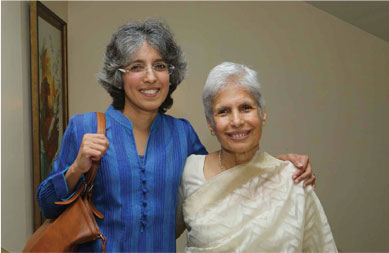
“The messages we receive in our childhood shape our lives. That becomes part of our script. I was never encouraged to become a career woman or even think of myself that way. Having said that, I don’t think our past or anything can be blamed to get on in life. If we get stuck in blaming our past, blaming our parents, blaming our husband, we won’t be able to get anywhere” - Anu Aga
It is not often that you have a mother and daughter sharing the workplace, even the same office. Anu Aga, Director, and her daughter, Meher Pudumjee, Chairperson, Thermax Ltd, do just that. Individually they have battled many a self-doubt, but as a team, power each other’s strength and pluck. All that revealed, at a CII-IWN organised Womenation summit
A daughter is just a little girl who grows up to be your best friend,’’ goes a saying, which fits the bill perfectly when it comes to stalwart corporate leader, Anu Aga, Director, Thermax and her daughter, Meher Pudumjee, Chairperson, Thermax. At a lively interaction, at the Womenation Summit organised by the Confederation of Indian Industries (CII) in association with Indian Women Network (IWN) in Mumbai recently, both spoke candidly about their relationship. They also gave an insight into how women should shed off the ‘guilt’ thrust upon them and come out of their cocoon to carve a niche for themselves, in whatever field they would like to be in. Excerpts from the interactive session, anchored by senior journalist and noted author, Sudha Menon.
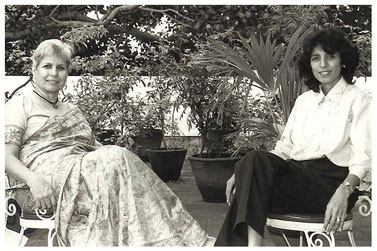
Meher : I just feel that our relationship is very unique. It is very unusual. There is a lot of love. There is a lot of mutual respect. But all in all, my mom is a very good friend. Genuinely, she is like a mentor but I also find that sometimes she is very dominant. When I was growing up with my brother, he used to call us BBC 1 and BBC 2. Everything that I knew, my mom immediately knew and vice-versa. My husband often says our umbilical cord is not cut yet. I think it is a very precious relationship. I guess many of us have it with our mothers and you get what you see in the other. Very open, very transparent, very down to earth; of course sometimes very irritating. But I am really very fortunate to have this relationship with her. And it is lovely that she lives five minutes down the road from us. But in the office, Anu is not there most of the time and she does not have a role in the organisation as she is a director on the board. What has been extremely helpful for me is that she is there when I need her. It is not that she is looking over me and telling me what to do and what not to do and sort of driving the organisation from behind, which is what most fathers do. They say they are retired but still they come to work and actually drive the organisation through their sons. Here, Anu genuinely believes ‘you are the chairperson, you run it and I am there whenever you need my support.’ So I think I am very lucky.
Anu : For me, she is genuinely my most trusted best friend. I think we have a lot of fun together. Recently, we were in Vietnam for a holiday and we laughed so much. Never do I laugh anywhere as much as when I am with her. We argue. We agree. We disagree. We hurt each other sometimes. Earlier I was not used to taking criticism from Meher. My son used to be the one who used to be critical of me. But my daughter was always adoring and nurturing me. In the last few years though, she has been telling me what’s wrong: ‘You are not a good listener, you are reactive, what you said was not right.’ In the beginning, I said how can she do that to me? And now I realise that if you want an authentic relationship, honest feedback is as important, and if I get hurt and withdraw, it will never be helpful to get her feedback again. So I am trying very hard to bounce back. Even though I am a little upset, I deal with it and carry on the relationship. It is too precious to let anything come in the way.
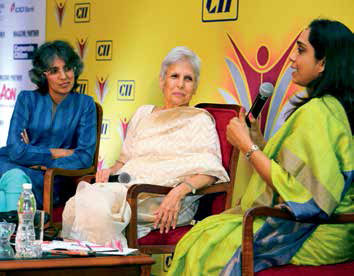
Meher : When I was in school, actually my mother was always available for me. At that time she did not have a full time job. So she was there. Later on, I went to boarding school and that’s when Mom started her full time career.
I will speak on my role as a mother for my children. I found out that I am definitely a far better mother because I am working. Genuinely! Because I find my children being very independent, very self-reliant. I stopped looking at the small stuff. It is for the larger things that there are dos and don’ts. Having said that, I have been there at every milestone of their lives, especially when they were at school. Whether it is basketball, concert or Parents Teacher (PTA) meetings, I have always been there for them. But whenever I had tried to sit with my children to do their homework, it was most disastrous because we used to just keep fighting. I told myself, I don’t want that, because I spend limited amount of time with them and so I’d rather that the relationship be very special. So I used to have somebody come over to take up their studies, or they used to go for tuitions, or they used to try it themselves. I said we don’t work together - let us spend this time together in a more productive manner.
I have also gone through guilt, especially when I talked to other women who used to say, ‘Oh, weren’t you there when your child took the first step?’ I said ‘No.’ And then suddenly sometimes guilt does hit me. But overall, I am very happy that I am doing what I want to do. And I think for women, I would like to say - you have expertise, passion and love for work – so give something - whether it is in the profit or the non-profit sector. I feel it is a wonderful thing to spend that time and energy and balance families. Also, many of us are very lucky to have a joint family system. We also have a lot of help. So we can take advantage of that too.
Anu : We used to live in Mumbai. By training I am a social worker and I worked for about four years. But when the business moved to Pune and we also shifted to Pune, I stopped working. I was friendly with a group of ladies who were socialising, playing cards and shopping. I enjoyed that. I had never done that in my life. My husband was shocked that I could be so frivolous and not be working. He would say, ‘How can a social worker not be working? Do something.’ I said, ‘I am 30 or whatever and I am a home lady. You can’t tell me what to do.’ So my rebelliousness was such that the more he said, the more I did what I did. Even when I was socialising and enjoying it, I was actually producing guilt in my mind. Guilt is a favourite feeling of women and we manufacture it anyway. I used to manufacture guilt saying, ‘I am not working. I am a qualified woman and I should be working.’
“For women, I would like to say—you have expertise, passion and love for work — so give something—whether it is in the profit or the non-profit sector. I feel it is a wonderful thing to spend that time and energy and balance families” - Meher Pudumjee
Then my husband, in his 40s, had a massive heart attack and suffered a stroke. We were a small, private limited company - very vulnerable. So friends suggested I should take a little interest in it because our kids were young. So where do I join the profession and in the company? So I joined in the Human Resource under a wonderful professional, Prasad Kumar. He invested in me, really nurtured me and five years later when he wanted to move on and be on his own, he suggested I could take over. So that was when I became the head of HR.
A few years later, my husband suddenly passed away. And within two days the board met. By then we had gone public. The board met and said I should be the executive chairperson. It was one of the most difficult periods in my life. I was missing my husband; I was not ready to take on this responsibility. I was not an engineer; my aptitude for finance was zero. I hated it. How do I head this company? And I kept complaining with myself, feeling that the only reason why the Board has nominated me was because we had majority share. I don't deserve to be there, I used to say to myself. But then I went for a Buddhist meditation called Vipassana and I found it extremely helpful. Ever since, I meditate daily. Come what may, I keep aside one hour for Vipassana. And I realised that all I need to do is to give my best. Nobody can be somebody else. I can’t be my husband. I can’t be anyone else. And if I am honest and have humility to say I don’t know and learn from others, we are intelligent enough to pick up things. So I would have people come over and tell me something and I would frankly say I don’t know and learn and surround myself with experts. I think we all have to have better people around us. And then we also engaged a consultant company. So that’s how I managed.
“What has been extremely helpful for me is that she is there when I need her. It is not that she is looking over me and telling me what to do and what not to do and sort of driving the organisation from behind, which is what most fathers do. Anu genuinely believes ‘you are the chairperson, you run it and I am there whenever you need my support.” -Meher Pudumjee
“I realised that all I need to do is to give my best. Nobody can be somebody else. I can’t be my husband. I can’t be anyone else. And if I am honest and have humility to say I don’t know and learn from others, we are intelligent enough to pick up things” -Anu Aga
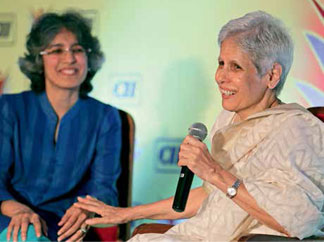
Anu : I think the messages that we receive in our childhood shape our lives. That becomes part of our script. I have two older brothers and in studies, I did better than them. But the constant message for me was you have to marry and produce children. Whereas my brothers were told you have to join the family business. Not once was I told that there was even a possibility of my joining the business. And in those days, I did not see any role models except teachers or nurses or some women working as secretaries and I thought business is something women have never done. That was the kind of mind-set then! Even as far as feelings were concerned, I was allowed to be sad and cry and got a lot of sympathy but if I got angry, my parents would say, ‘One day you have to live with your in-laws. How can you show your anger?’ When my brothers cried, they were called sissies. So even feelings were compartmentalised according to the gender, which I think is ridiculous. So, I was never encouraged to become a career woman or even think of myself that way. My needs of affiliation were encouraged, whereas for men, the needs of achievement were encouraged. Things have changed. They changed the way I brought up my son.
So we start with this script, which is not very helpful to building a career. Having said that, I don’t think our past or anything can be blamed to get on in life. You cannot! And whenever I feel stuck or I feel I am the owner, I remind myself, ‘Anu, the entire room is available for you to explore. Don’t get stuck.’ So I think if we get stuck in blaming our past, blaming our parents, blaming our husband, we won’t be able to get anywhere.
I have seen married women saying, “I am so lucky I am married to a man who allows me to work.” How is it that men ‘give permission’ to their wives to work? Why should a mother feel guilty to leave children at home? This is something unique and we have to shed this. It is your birth right to decide what you want to do.
Meher : Very much. For me, the script changed hugely from what my mom went through. I remember my paternal grandmother had the same script. And she used to be very protective towards my brother. So much so that if there were two pieces of chicken, she would say this one is for my son and this one is for my grandson. And my mother would oppose that and say, “But what about my daughter?’’ So she would take up for me. As we were growing up too, Kurush, that is my brother, was encouraged to cook as he loved cooking and my Mom encouraged him to come to the kitchen. He liked eating too. So Mom encouraged that as well. I hated cooking, and that was okay.
We were both sent abroad for education. Education was something that both my parents felt that both of us should get. And there was absolutely no preference for the boy child. It comes down to me too.
Let me also say that there was discrimination when I was in England; it does not exist just in India. We were five of us looking after our office in England. I am an engineer by training. So we had to do everything in the office because we were so few of us. I would pick up the phone when a customer called and say ‘May I help you?’ They would say ‘May I speak to the sales person?’ When I would say ‘Speaking’, they would say ‘No, may I please speak to the salesman.’ You know, so it is not just in India that you face this kind of differential treatment and these kind of messages. I think it is there the world over. And it will take time to change.
Anu : I agree that women in rural India need mental nurturing. But let us face facts. All of you here are working women with very little free time. You have families to look after and I think that there are enough issues in the urban areas also that need your attention. And everyone cannot reach out to the rural areas. Ela Bhatt is a full time social worker. She is a role model. But even within the city, giving the time, a few hours a week may be, for whatever cause you want to, can also be explored or have you become so self-absorbed? That’s the question I would like to ask.
Meher : I can just say that, in fact Madhur Bajaj (he is Vice Chairman, Bajaj Auto Ltd and was one of the few men in the audience) has done quite a bit, in many tiny ways, like a drop in the ocean. CII has got an award where we recognise grassroots women who have been doing wonderful work and have become role models in their villages. We recognise them each year in health, in education and micro enterprise. We want to make it such that they network with each other so that they can create many more role models in their areas of devotion. So in small ways, CII is trying to do the needful in this area.
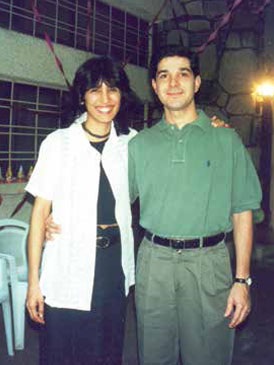
Anu : Women are not sure of themselves. However successful they are, they are not confident. Men will easily brag. Women find it very difficult to talk of their genuine achievements. Without bragging how can you have confidence in yourself? Self-worth is something we want to develop. If a man shouts, if a man gets angry you may get intimidated. Even at home, you need to be assertive. You don’t need to be aggressive like men. I don’t think aggressiveness is a good quality. But be assertive. Very firmly, say ‘Sorry, this will not be accepted.’ Very firmly! I think assertiveness is very important for women. What I said earlier and what I want to repeat - drop the guilty feeling for God’s sake! It does not help you. What does guilt do? Guilt gives you permission to repeat the same mistake. Because you say ‘I suffered so much, now I am guilty.’ This is not an answer. So drop it and you can. It is a manufactured feeling that men don’t have and women have learnt to carry it, over the years. Also change your definition of caring. There is a difference between caring and being neurotic. I will give an example. Your 18 year old teenaged girl is out at a party and you can’t eat, you can’t sleep. That’s not love, that’s neurosis! Sacrifice is a dirty word. Do something because you want to do. Then it is not sacrifice.
Meher : I have to say that we are a well-placed engineering company. We have very few women - less than 7%. So it is still very low and we would love for the percentage to increase. We have done a few things. Women don’t very often have role models. So we started a forum in Thermax called Sakhi Forum where we invite women from other businesses to come and talk about their life, their challenges and how they have risen within their organisations. So that is one way we can have women see what their role models are like. We also have women interns speaking about what it is like to be a woman professional in Thermax. Unfortunately, not many women like to join the manufacturing, engineering work base. Both Anu and I go and address them and listen to their challenges. We try to help them to be more assertive, especially when certain sexual harassment cases are spoken about. Instead of going and complaining, can you first start by being assertive and saying ‘Sorry, this will not do.’ If at the drop of the hat, you start complaining it doesn’t really help the situation. I think you first need to protect yourself. We also started sensitising men about how to look at this Prevention of Sexual Harassment (POSH) Act, when it came to be. So a few things we have been able to do, but we haven’t been able to get more and more women in the work place. We haven’t really been able to get women back into work after they were gone on maternity leave and being with their children. It is very difficult to bring them back into the work space. So I feel there is still a lot more to be done.
Anu : Madhur, you mean there was a conversation between Meher and me before I handed over? It did not happen like that. I mobilised myself by taking a decision, making it public and then working towards it. So there was a press release and I announced that I was 61 and I was going to retire. Meher was quite angry with me, saying `how can you not discuss with me before releasing the press note.’ First of all, it is not for me to select. The board selected her. To give it up is not that easy. But I wanted to give it up. And you know you do not give up because you are not physically fit. You give up because that’s the right thing for the organisation. I never wanted the organisation to be vulnerable the way it was when I took over after my husband’s sudden death. I wanted a planned succession. I have seen mostly men holding on to the position till they are 75-80 years old. Everybody says ‘Ye Buddha Kabhi Jayega?’ In family conferences, I have heard so many youngsters tell me, ‘Please teach our father how to let go.’ Men are very difficult to deal with, more than women.
Anu : It was up to the Board to decide - if not her, someone else.
Meher : Let me also say she wrote me a letter after that because I wasn’t at all ready. I had all those doubts. My parents were so successful, how was I going to fit in their shoes? And also it is not very often that when you have a husband and wife in an organisation, the wife takes a lead role. I was very aware of that and what it could do to our relationship because my husband is also in Thermax. I have small kids. I had many self-doubts at that moment. And she wrote me a very nice letter, in which she said an apple tree cannot give oranges. So you do what you think is right. You give out your best. That’s it. You can’t be like your mother, you can’t be like your father. You can’t be like other people. You just give out your best and that’s it.
By vinita deshmukh